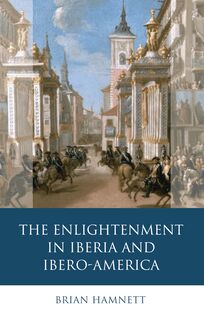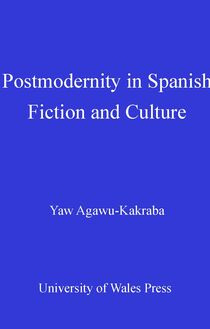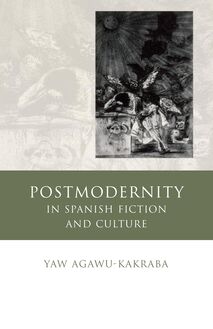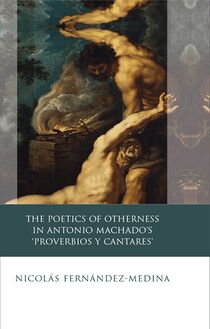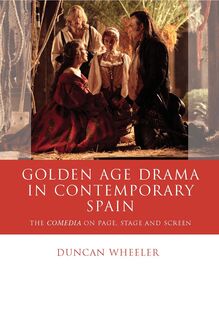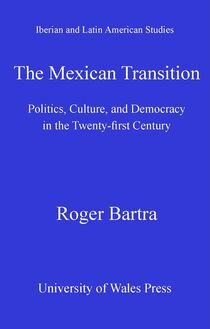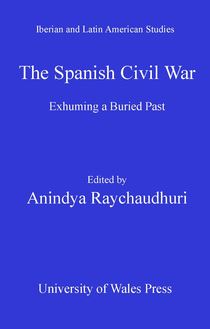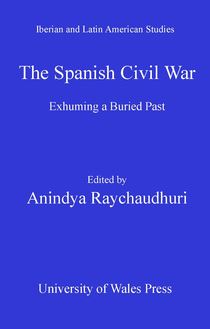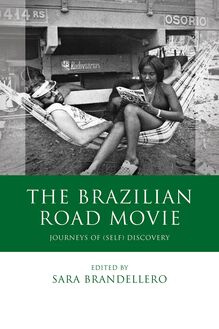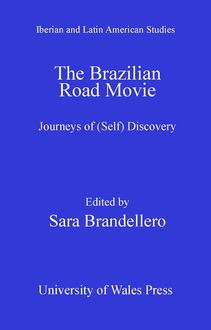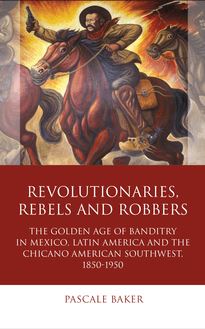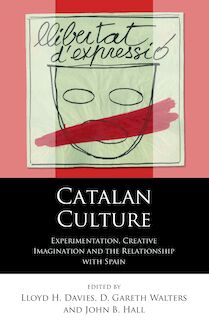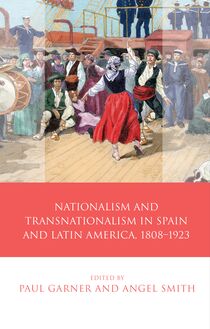-
 Univers
Univers
-
 Ebooks
Ebooks
-
 Livres audio
Livres audio
-
 Presse
Presse
-
 Podcasts
Podcasts
-
 BD
BD
-
 Documents
Documents
-
- Cours
- Révisions
- Ressources pédagogiques
- Sciences de l’éducation
- Manuels scolaires
- Langues
- Travaux de classe
- Annales de BEP
- Etudes supérieures
- Maternelle et primaire
- Fiches de lecture
- Orientation scolaire
- Méthodologie
- Corrigés de devoir
- Annales d’examens et concours
- Annales du bac
- Annales du brevet
- Rapports de stage
La lecture à portée de main
Vous pourrez modifier la taille du texte de cet ouvrage
Découvre YouScribe en t'inscrivant gratuitement
Je m'inscrisWomen, Memory and Dictatorship in Recent Chilean Fiction , livre ebook
Découvre YouScribe en t'inscrivant gratuitement
Je m'inscrisEn savoir plus
Vous pourrez modifier la taille du texte de cet ouvrage
En savoir plus

Description
In what ways do the politics of memory perpetuate gendered images of those directly affected by political violence in Chile? Can the literary rewriting of painful experiences contest existing interpretations of national trauma and the portrayal of women in such discourses? How do women participate in the production of collective narratives of the past in the aftermath of violence? This book discusses the literary representation of women and their memory practices in the recent work of seven contemporary Chilean authors: Diamela Eltit, Carlos Franz, Pía González, Fátima Sime, Arturo Fontaine, Pía Barros and Nona Fernández. It locates their works in the context of a patriarchal politics of memory and commemorative culture in Chile and as part of a wider body of contested interpretations of General Augusto Pinochet’s military dictatorship (1973–90). Through the analysis of novels that depict the dictatorial past through the memories of women, it is argued that these texts understand and explore remembrance as a process by which the patriarchal co-option of women’s memories can be exposed and even contested in the aftermath of violence.
Series Editors’ Foreword
Acknowledgements
Introduction
1. Violence and Women’s memories in El Desierto
2. Militants, Wives and Mothers in Jamás el Fuego Nunca and Libreta de Familia
3. Female Collaboration in Carne de Perra and La Vida Doble
4. Daughters Rewriting Legacies in ‘El lugar del otro’ and Fuenzalida
Conclusion
Notes
Bibliography
Index
Sujets
Informations
| Publié par | University of Wales Press |
| Date de parution | 15 novembre 2021 |
| Nombre de lectures | 0 |
| EAN13 | 9781786838056 |
| Langue | English |
Informations légales : prix de location à la page 0,3750€. Cette information est donnée uniquement à titre indicatif conformément à la législation en vigueur.
Extrait
IBERIAN AND LATIN AMERICAN STUDIES
Women, Memory and Dictatorship in Recent Chilean Fiction
Series Editors
Professor David George (Swansea University)
Professor Paul Garner (University of Leeds)
Editorial Board
Samuel Amago (University of Virginia)
Roger Bartra (Universidad Autónoma de México)
Paul Castro (University of Glasgow)
Richard Cleminson (University of Leeds)
Catherine Davies (University of London)
Luisa-Elena Delgado (University of Illinois)
Maria Delgado (Central School of Speech and Drama, London)
Will Fowler (University of St Andrews)
David Gies (University of Virginia)
Gareth Walters (Swansea University)
Duncan Wheeler (University of Leeds)
Other titles in the series
Doña Bárbara Unleashed: From Venezuelan
Plains to International Screen
Jenni M. Lehtinen
Ophelia: Shakespeare and Gender in Contemporary Spain
Sharon Keefe Ugalde
Madness and Irrationality in Spanish and Latin American Literature and Culture
Lloyd Hughes Davies
Fantastic Short Stories by Women Authors from Spain and Latin America: A Critical Anthology
Patricia Gracía and Teresa López-Pellisa
Carmen Martín Gaite: Poetics, Visual Elements and Space
Ester Bautista Botello
The Spanish Anarchists of Northern Australia:
Revolution in the Sugar Cane Fields
Robert Mason
Paulo Emilio Salles Gomes: On Brazil and Global Cinema
Maite Conde and Stephanie Dennison
IBERIAN AND LATIN AMERICAN STUDIES
Women, Memory and Dictatorship in Recent Chilean Fiction
Palabra de Mujer
GUSTAVO CARVAJAL
© Gustavo Carvajal, 2021
All rights reserved. No part of this book may be reproduced in any material form (including photocopying or storing it in any medium by electronic means and whether or not transiently or incidentally to some other use of this publication) without the written permission of the copyright owner. Applications for the copyright owner’s written permission to reproduce any part of this publication should be addressed to the University of Wales Press, University of Wales Registry, King Edward VII Avenue, Cardiff CF10 3NS.
www.uwp.co.uk
British Library CIP
A catalogue record for this book is available from the British Library.
ISBN 978-1-78683-803-2
e-ISBN 978-1-78683-805-6
The right of Gustavo Carvajal to be identified as author of this work has been asserted in accordance with sections 77 and 79 of the Copyright, Designs and Patents Act 1988.
Contents
Series Editors’ Foreword
Acknowledgements
Introduction
Patriarchy and memory
Remembering dictatorial Chile
Women’s memories in the public sphere
Chilean fictions of the traumatic past
1 Violence and Women’s Memories in El Desierto
Rituals of violence and memory
Understanding the traumatic past
Victims and perpetrators
2 Militants, Wives and Mothers in Jamás el Fuego Nunca and Libreta de Familia
The Chilean novel, the dictatorship and the left
The gendered construction of militants and wives
The gendered construction of a mother
3 Female Collaboration in Carne de Perra and La Vida Doble
The Bachelet government
Confessions and conversions
Collaborators in democracy
Telling stories
4 Daughters Rewriting Legacies in ‘El lugar del otro’ and Fuenzalida
Inherited memories
Family albums
Daughters of the dictatorship
Rewriting legacies
Conclusion
Notes
Bibliography
Series Editors’ Foreword
Over recent decades the traditional ‘languages and literatures’ model in Spanish departments in universities in the United Kingdom has been superseded by a contextual, interdisciplinary and ‘area studies’ approach to the study of the culture, history, society and politics of the Hispanic and Lusophone worlds – categories that extend far beyond the confines of the Iberian Peninsula, not only in Latin America but also to Spanish-speaking and Lusophone Africa.
In response to these dynamic trends in research priorities and curriculum development, this series is designed to present both disciplinary and interdisciplinary research within the general field of Iberian and Latin American Studies, particularly studies that explore all aspects of Cultural Production (inter alia literature, film, music, dance, sport) in Spanish, Portuguese, Basque, Catalan, Galician and indigenous languages of Latin America. The series also aims to publish research in the History and Politics of the Hispanic and Lusophone worlds, at the level of both the region and the nation-state, as well as on Cultural Studies that explore the shifting terrains of gender, sexual, racial and postcolonial identities in those same regions.
For Alejandra and Rafael, with much love
Acknowledgements
This book started out as a doctoral dissertation written under the supervision of Professor Karl Posso and Dr James Scorer at the University of Manchester. I am extremely grateful to Professor Posso and Dr Scorer for their infinite patience, valuable insight and honest advice throughout those years. What I learned under their guidance has been invaluable to me. I also thank the team at the University of Wales Press, especially Sarah Lewis, for their input and opportune help during the writing of this book.
As a graduate student, I had the privilege of pursuing my studies with many encouraging fellow postgraduates, in particular Patrick O’Shea, Alejandra Isaza, Kristina Pla and Miquel Pomar. I am especially thankful to Ignacio Aguiló for his friendship and always appreciated advice.
While living in West Yorkshire, I found an incredible group of friends in the School of English and the Leeds Humanities Research Institute at the University of Leeds. I wish to thank Valentina Ragni, Angelica Pesarini, Silvia Bergamini, Vasiliki Nassiopoulou, Hui Ling Michelle Chiang, Adrian Knapp and Henghameh Saroukhani for their inspiration. I am particularly thankful to Arthur Rose for his friendship and support during my last months in Leeds and Manchester back in 2015. I also want to express my sincere gratitude to Nick Hutcheon. His help was invaluable during the preparation of this book. In Hull, I am eternally indebted to Ruth, Mark and Haroldo for their cheerful advice and kindness all those years away from home.
Of course, I would have achieved nothing without the love and support of my parents, María Angélica and Patricio. I am also especially indebted to my parents-in-law, Sofía and Eduardo, for their words of advice and help during the current Coronavirus disease pandemic.
Finally, I am deeply grateful for the support I have received from Alejandra and Rafael. Their love helped me to write this book. My research would not have been possible without them.
Introduction
This book investigates the literary representation of women and their memory practices in the work of seven contemporary Chilean authors: Diamela Eltit, Carlos Franz, Pía González, Fátima Sime, Arturo Fontaine, Pía Barros and Nona Fernández. It locates their works in the context of a patriarchal politics of memory and commemorative culture and as part of a wider body of contested interpretations of General Augusto Pinochet’s military dictatorship (1973–90). Through the analysis of novels that depict the past of women touched by political violence, it is argued that these texts understand remembrance as a process by which the (patriarchal) silencing, co-option or nationalisation of women’s memories can be exposed, denounced and even contested in the aftermath of violence. It challenges masculine control over memory politics in Chile to address the painful experiences of women and to examine how these experiences are portrayed in dominant interpretations of national trauma. To show this, I discuss how the texts use formal and thematic aspects to critique the deployment of standard socio-cultural conventions regarding women, as articulated in collective discourses of the past.
An example of the patriarchal control over memory politics is the report of the Chilean Comisión Nacional de Verdad y Reconciliación (National Truth and Reconciliation Commission). In 1990, Christian Democrat president Patricio Aylwin appointed lawyer Raúl Rettig Chairman of the committee. 1 A year later, the Rettig Report was published. It provided a comprehensive account of human rights violations during Pinochet’s regime, identified thousands of victims and proposed reparatory measures for the future. Yet the majority of cases presented by the report referred to male victims of forced disappearance. For the commission, the main targets of human rights violations were typically men, a distortion that shaped the entire historiography of the period. In fact, women were portrayed almost exclusively as mothers or wives of the disappeared and as ‘spoils of war’, their names left out of the three-volume report. In the brief mention of women in the report, there is no further discussion of female-specific experiences (for instance, pregnancy, abortion or motherhood in captivity). These issues remained at the margins of male-oriented narratives of past atrocities. It is within this context the selected novels are read in this study. When the representation of women’s memories in the public sphere is analysed, it exposes the problems inherent in writing and propagating male-dominated accounts of national trauma. Certainly, women’s memories are included, but these inclusions generally serve, as in the Rettig Report, a patriarchal collective. However, by addressing the way in which women’s memories contribute to nationalised accounts of the past and revealing the extent to which their recollections differ from male-dominated memory discourses of dictatorial rule, these texts contest the politics of memory and the function of women’s memories in such discourses.
When addressing the politics of memory in Chile since the return to democracy in 1990, scholars have mainly focused on two areas of inquiry. First, they have considered the body of practices and policies designed to assess the legacy of past atrocities such as prosecution
-
 Univers
Univers
-
 Ebooks
Ebooks
-
 Livres audio
Livres audio
-
 Presse
Presse
-
 Podcasts
Podcasts
-
 BD
BD
-
 Documents
Documents
-
Jeunesse
-
Littérature
-
Ressources professionnelles
-
Santé et bien-être
-
Savoirs
-
Education
-
Loisirs et hobbies
-
Art, musique et cinéma
-
Actualité et débat de société
-
Jeunesse
-
Littérature
-
Ressources professionnelles
-
Santé et bien-être
-
Savoirs
-
Education
-
Loisirs et hobbies
-
Art, musique et cinéma
-
Actualité et débat de société
-
Actualités
-
Lifestyle
-
Presse jeunesse
-
Presse professionnelle
-
Pratique
-
Presse sportive
-
Presse internationale
-
Culture & Médias
-
Action et Aventures
-
Science-fiction et Fantasy
-
Société
-
Jeunesse
-
Littérature
-
Ressources professionnelles
-
Santé et bien-être
-
Savoirs
-
Education
-
Loisirs et hobbies
-
Art, musique et cinéma
-
Actualité et débat de société
- Cours
- Révisions
- Ressources pédagogiques
- Sciences de l’éducation
- Manuels scolaires
- Langues
- Travaux de classe
- Annales de BEP
- Etudes supérieures
- Maternelle et primaire
- Fiches de lecture
- Orientation scolaire
- Méthodologie
- Corrigés de devoir
- Annales d’examens et concours
- Annales du bac
- Annales du brevet
- Rapports de stage
